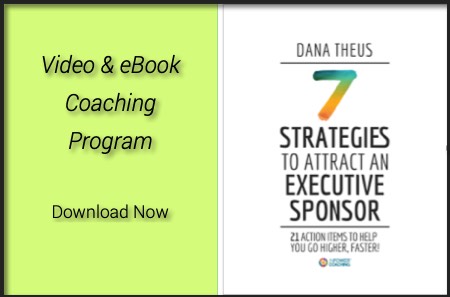There’s merit to the feminist narrative that says professional women aren’t hired for the top jobs as often because corporate cultures aren’t accommodating and sexism still exists – but sometimes it’s not about that at all. Sometimes, high-achieving women leaders are just not ready, or we aren’t investing in ourselves appropriately or we stress the wrong things in the interview. And while the former issues seem bigger than us as individuals, we can sure as heck prepare better for an interview! Here are some job interview tips for all levels, but if you’re a professional women hoping to skirt the glass ceiling and land yourself in the executive suite, scroll right to the bottom.
These interview tips are from a recent article summarizing a study by the Career Advisory Board that discovered why working women and men often don’t make it to the top. Specifically, the study was looking at correlations and divergences between what hiring managers are looking for and what job seekers are offering. Could this be another contributor to the glass ceiling – for working women and some men too?
Interviewing for Entry & Mid-level Jobs: Most Of Us Do Ok
According to the study, most individuals present themselves well – and appear to be investing in their career development in the appropriate ways below the glass ceiling.
Entry Level – What hiring managers are looking for and what job seekers present as their strengths:
- plays well with others,
- self-motivated,
- integrity, and
- time management skills
Only one entry level area – self-motivation and drive – appeared to show some divergence, and it seems that job seekers need to be more focused on the value this brings to their employer.
Mid-Level – What hiring managers are looking for and what we deliver:
- problem solving,
- strong communications skills,
- self-motivation,
- good time management skills, and
- accountability.
The study says job seekers are doing a good job investing in themselves and valuing their abilities in these top areas. Only in the area of emphasizing and investing in our interpersonal skills (further down on the list of desirables) does there seem to be a 9% difference between what job seekers and hiring managers thought was important.
Interviewing for The Executive Suite: When Nose To The Grindstone Fails You
Here there is a lot of room for improvement. While hiring managers and job seekers both value integrity highly, after that their expectations of how to get the key to the executive washroom diverge rapidly. Job seekers for the top slots think they need to demonstrate their problem solving skills and strong work ethic. But here’s what those hiring their executive peers and peer-wannabes are looking for in their future leadership:
- strategic perspective
- business acumen, and
- a global outlook.
Wow. That’s quite a disparity isn’t it? And here’s what it means. It means that making decisions about running the business isn’t the same skill set and work activity as running the business. This seems like common sense to anyone who’s had to run a business, but when you’re in middle management, you’re usually very focused on delivering one thing – your thing – really, really well. Whether it’s the right thing to be doing isn’t usually your concern. The execs made the business investment decision to enter this market, or launch this product, or hire that many people, or change your accounting system or sell in this region (etc., etc., etc….); middle management’s job is to succeed in executing that decision. Two totally different perspectives.
As an exec you’re making the investment decision that will send scads of middle and entry-level people scurrying to execute a success, and you have to take different factors into account, think and value things differently and most of all – see more broadly and longer term.
In other words, you have to lift your nose off the grindstone, look around and detach from the way “it’s always been done” so you can work on coming up with even better ways to accomplish the business goals.
You also need to value the overall business success more than the success of your product/department/function. This is a challenge for many people who grow up in one particular area of the business. However, the ability to work strategically cross-function is a critical executive skill. Harvard Business Review has done some fabulous research on the skills needed to succeed at the top in each CXO function and here was their primary takeaway. “Once people reach the C-suite, technical and functional expertise matters less than leadership skills and a strong grasp of business fundamentals. Chief information officers need to know how to create business models; chief financial officers, how to develop risk management strategies; chief human resource officers, how to design a succession plan and a talent structure that will provide a competitive edge. In other words, the skills that help you climb to the top won’t suffice once you get there. We’re beginning to see C-level executives who have more in common with their executive peers than they do with the people in the functions they run. And today members of senior management are expected not only to support the CEO on business strategies but also to offer their own insights and contribute to key decisions.” (emphasis added)
Takeaway: Time To Learn Some New Skillz
In a future post I’ll provide some specific advice for how to get out of the weeds and start to think like an executive so you can be hired to be one. But right now, just let the fact sink in that no matter how good you are at what you do, the reason you may be struggling to break into the top jobs might have less to do with your gender and competence and may have more to do with your perspective and experience thinking beyond the role you’ve played to date.
How does this information strike you? Are you surprised? Confirmed? From your vantage point on either side of the CXO suites, do you see these dynamics in play? How are you responding? How are your colleagues responding? Share your insights and we all benefit!
Want to attract an executive sponsor to help you get a promotion? Check out our video and eBook coaching program!








